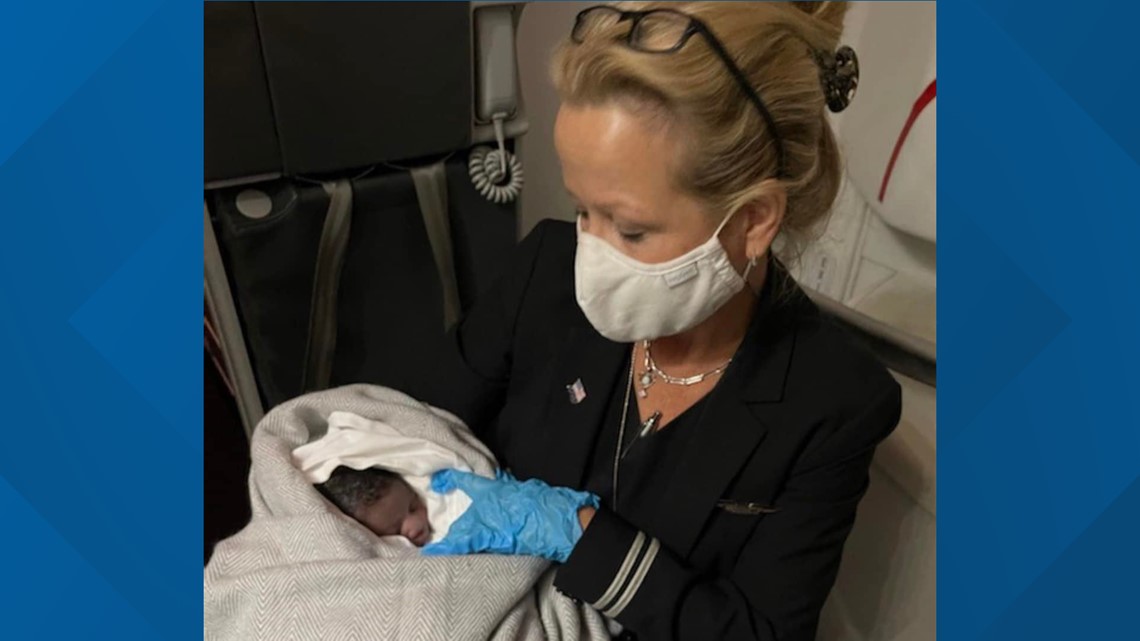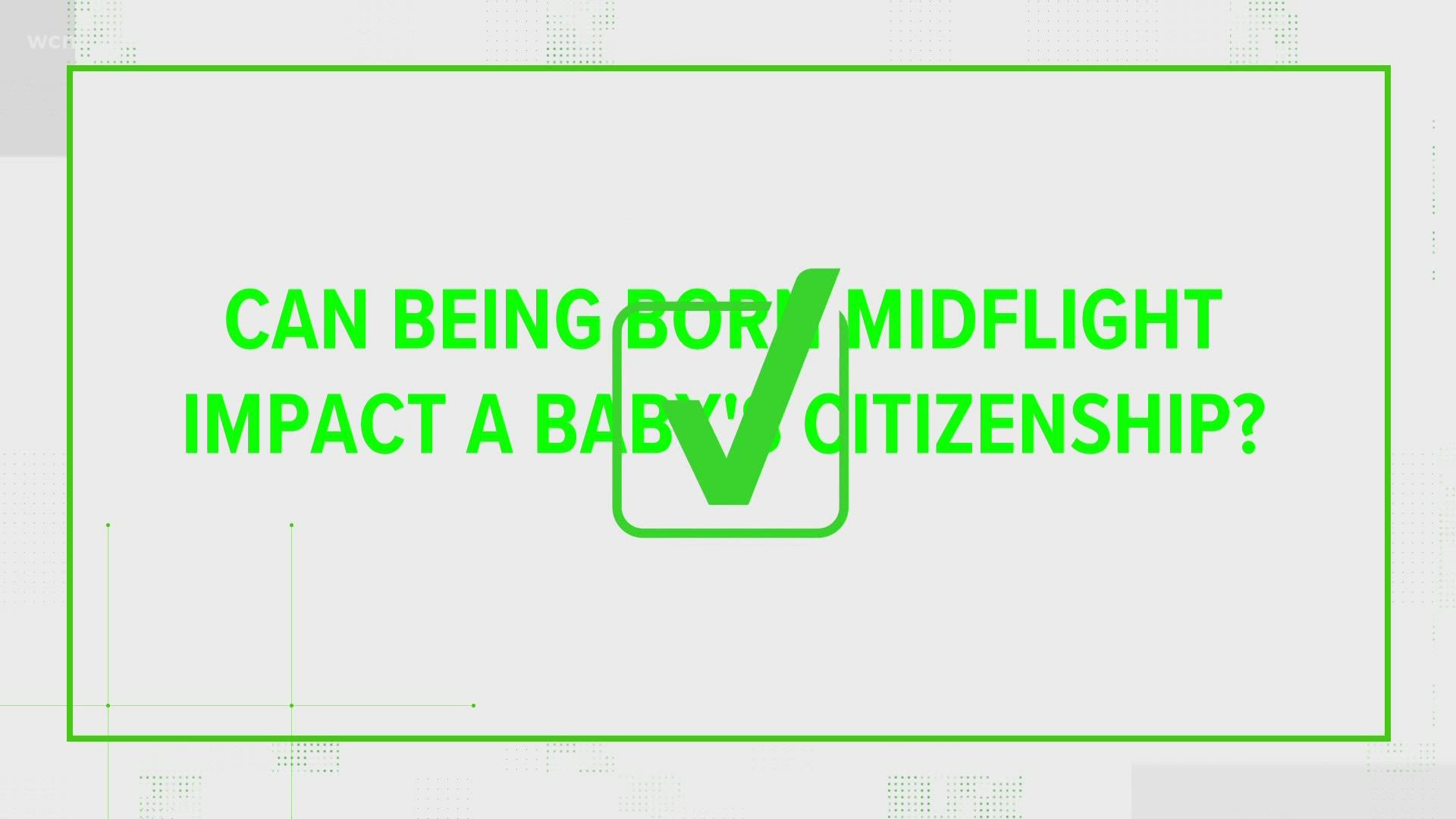CHARLOTTE, N.C. — It was the flight of a lifetime for those aboard a United Airlines plane headed from Ghana to the United States.
The plane, which landed at Dulles International Airport on Sunday, had one extra passenger than when it took off. A woman on board went into labor, prompting a doctor on board and a flight attendant with nursing training to spring into action. United staff greeted mom and baby upon landing with gifts, including a congratulatory card, and the pair went to the hospital afterward.
The Question
Can being born midflight impact a baby's citizenship?
Our Sources
The Answer
Yes, a birth during a flight could impact a child's citizenship.
According to the Foreign Affairs Manual, "All children born in and subject, at the time of birth, to the jurisdiction of the United States acquire U.S. Citizenship."
The manual states that some locations, other than actual U.S. soil, may qualify as U.S. jurisdiction for citizenship purposes. One example is a ship on U.S. "internal waters," including a port, harbor, or bay. Birth on a ship within the U.S. "territorial sea" or on a plane over U.S. land or its "territorial sea" appears to be murkier but could potentially also qualify a child for citizenship.
According to the manual, the "territorial sea" includes the waters within 12 nautical miles of the U.S. coastline.
There are some exceptions.
For example, the manual states that those born on a foreign military craft, even within the boundaries stated above, would not qualify for U.S. citizenship. Meantime, those born outside the boundaries, for example, on a military base abroad -- which does not count as U.S. jurisdiction for citizenship purposes -- could still be U.S. citizens with one or both parents being U.S. citizens, according to the U.S. Code of Law.
The Foreign Affairs Manual states that for births midflight, U.S. Customs and Border Protection would need documentation of the birth upon landing, likely including a captain's log with the time, latitude, and longitude of the birth.
The parent would then have to report the birth to civil authorities in the U.S. jurisdiction where they landed or were put into port.


VERIFY is dedicated to helping the public distinguish between true and false information. The VERIFY team, with help from questions submitted by the audience, tracks the spread of stories or claims that need clarification or correction. Have something you want VERIFIED? Text us at 704-329-3600 or visit /verify.

